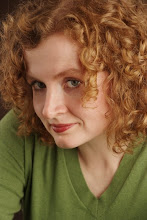Thursday, November 29, 2007
The House of the Scorpion, by Nancy Farmer, 2002
Matteo Alacran foot bears a tattoo: Property of the Alacran Estate. Matt is no mere slave; he's a clone, with no more legal rights than cattle. But unlike other clones whose minds are stunted at birth, Matt is ultimately raised as a pampered prince, led to believe he's the heir of El Patron, the drug lord whose clone he is and whose opium empire he thinks he'll inherit. Provocative science fiction with memorable characters that asks probing questions not only about science and ethics but international trade, law, economics, and drug trafficking. Recommended.
Clay, by David Almond, 2005
Is Stephen Rose disturbed, or daft, or devilish? Maybe all three. That's why he was expelled from Catholic school and sent home, then from there to live with his aunt, Crazy Mary in the town where Davie and Geordie, circa 1960, are busy doing nothing but sneaking cigarettes and avoiding Mouldy, the town heavy. Stephen Rose is freaky-odd, to say the least. He sees visions, talks to angels, and has artist's hands that can make clay practically come alive. Psychological and supernatural, frightfully uncertain and unsettling. Excellent young adult horror; but then, when does David Almond ever disappoint? Strongly recommended.
Thursday, November 15, 2007
How I Live Now, by Meg Rosoff, 2004
Daisy goes to England to stay with her aunt and cousins to escape her evil stepmother, and finds herself on the threshold of both a passionate love affair and an international war. When her cousin's family is wrenched apart by the military commandeering their homestead, she's forced into a heroism she didn't know she had, and takes a hard second look at her anorexia in a world without food. An extraordinary voice and perspective; Daisy's love affair may disturb some American readers who interpret relationship rules differently than Europeans tend to. Sex alert. Masterfully written.
Day of Tears by Julius Lester, 2005
Based on true events, this "novel in dialogue" reads in part like a play, part like a documentary, though it combines fictive and historical personalities. In 1859 the largest slave auction in America took place in Savannah, Georgia, where over 400 slaves belonging to a once-prosperous plantation were sold off to pay the owner's gambling debts. On that day a rain of Biblical proportions seemed to try to wash away the taint of what took place, and the tears of the families ripped apart by the auction mirrored the rain.
Subscribe to:
Comments (Atom)
